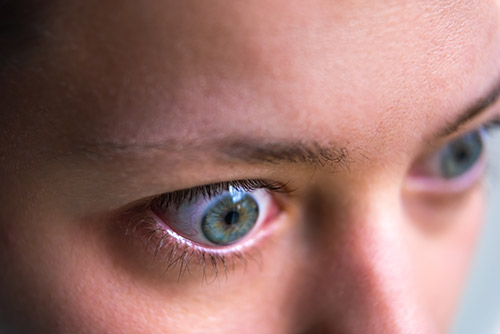2022-06-30 00:00:00Z

People with high levels of thyroid hormones or hyperthyroidism are of particular risk for eye disease. If you have underactive thyroid less commonly you will experience this disease and very rare if you have normal thyroid levels. Check with your eye doctor to determine if you ever had thyroid problems or have an autoimmune disease and submit for blood tests to check your thyroid hormone levels and confirm the diagnosis.
Most people with thyroid eye disease will already know once they have thyroid disease or sometimes it is the first problem that brings the person to the eye doctor’s clinic. The patient normally experienced dry eyes, watery eyes, red eyes, bulging eyes or a ‘stare’ double vision. Others experienced difficulty in closing their eyes and problems with visions. Thyroid eye disease will affect many different parents of the eyes and its surrounding tissues. Obviously most patients have an abnormal immune reaction causing swelling in the tissues of the eyelids and orbit that will make the eyelids look puffy or as if the person has ‘baggy’ eyelids. Early treatment if addressed early will include medications to suppress the production of hormone by the thyroid gland, radioactive iodine to eliminate hormone-producing cells and surgery to remove the thyroid tissue.
The biggest risk of untreated thyroid eye disease is vision loss. It includes blurriness and double vision. Thyroid eye disease will be managed well with appropriate treatment. In order to assess your vision and the changes in the tissues around your eyes, visit your eye doctor because there are several tests your eye doctor will perform. The earlier the diagnosis the better it will maintain your hormone level to normal.
For more tips on Thyroid eye disease, contact VisualEyes Optometrists.
(703) 417-9316
(703) 671-1188
(703) 764-3937
(703) 804-0355
(Pentagon ID Holders Only)
5876 Kingstowne Center Alexandria, VA 22315
Visit Website Make Appointment4018 Campbell Avenue Arlington, VA 22206
Visit Website Make Appointment9600 H. Main Street Fairfax, VA 22031
Visit Website Make Appointment1 South Rotary Road, STE 2C113
Arlington VA 22202
(For Authorized Pentagon Personnel Only)
Copyright 2025 VisualEyes Optometry. All rights reserved. Website Designed and Maintained by WSI Pro Marketing.
